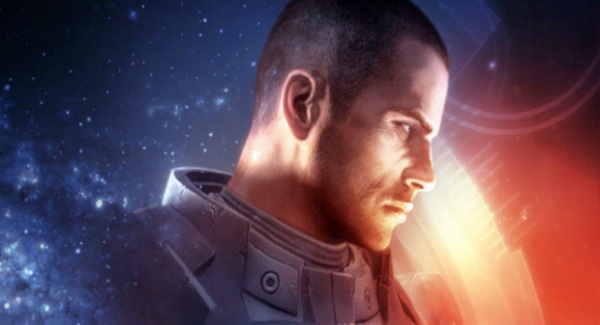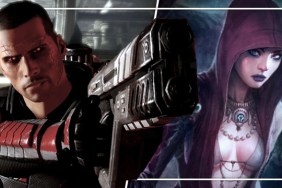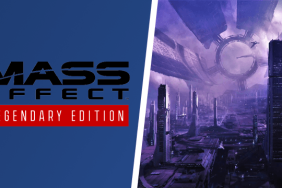Spoiler alert, of course.
Recently, Alex Osborn wrote an editorial feature sharing why he thought BioWare shouldn't change the ending of Mass Effect 3 despite the abundance of negative criticism hurled by fans of the series. His opinion is understandable, as it is in defense of BioWare's writers and developers who deliberately chose an open-ended conclusion to the trilogy. As an editor, however, I knew that as I was preparing his article to appear on this site that I needed to voice the opposing position. The majority of complaints against the ending are legitimate: BioWare should change the ending of Mass Effect 3.
I find the “let art be art” position to be too self-defensive in favor of the artist. If we ever want video games to be accepted as art, then its players and consumers also need to become artful critics. We cannot dismiss complaints from gamers, the audience, especially if they sincerely question the merit of a game's design. It's widely assumed that Internet comments and 1,000-character rants tend to be whiny, pissy, misspelled tantrums, but every now and then, they're actually composed, succinct, and valid. This is one of those cases.
On a tangential note, though online petitions might be sometimes oafish, they're an important part of free speech and they test the waters for consensus. A recent outcry and resulting online blackout of Battlefield 3 by its fans, against the odds, led Electronic Arts to finally communicate with its community and reveal the details of their upcoming updates for the game. It's as important for a developer, or any artist, to listen to their own voice and with one ear open listen to what other people have to say. Video games are in the business of art. Artists who don't get paid aren't artists for very long.
No developer, regardless of whether their game is free or not, should be allowed to hide behind the cover of artistic sanctity. Just because BioWare has given a tremendous amount of effort into the ending—the “tried really hard” defense—doesn't make it immune to poor execution. Otherwise, judging anything at all would be meaningless. I would be out of a job and Game Revolution would be more like Game Subservience.
The idea that video game endings shouldn't be altered from its original state is based on the world of linear media, of literature and film, and ignores one essential strength that contributes to games being a new artform: modification. Especially in the recent years of extensive downloadable content, video games and their endings change constantly. Borderlands had five pieces of DLC that extended its ending, a Director's Cut of a game sometimes reveals alternate endings, and patches transform and repair games on a regular basis. The most notable example would be Fallout 3, which had its ending effectively mutated (so to speak) with Broken Steel, its third downloadable content, by allowing the player to survive and continue past the ending altogether. Even books and movies can have extended editions and multiple revisions.
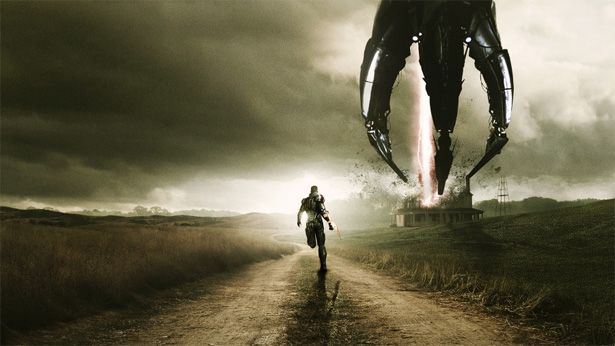
That BioWare can change Mass Effect 3's ending is more than possible, and to have fans ask that they do so show not only how displeased they are, but also how much they care about the Mass Effect universe and their hours upon hours of investment in the trilogy. It's true that BioWare can do what they want: They have as much of a right to refuse to listen as much as we have the right to speak up… they'll just have to live with an ending that's insufficient and lazily open-ended.
I say “lazily open-ended” because it's common to list the strengths of open-ended conclusions themselves as a defense for ones that are in fact weak. Sure, they almost always strike a discussion among viewers as to what really happens, but the discussion I usually hear about Mass Effect 3's ending is rarely a positive one. Pulling off an open-ended conclusion has a high degree of difficulty due to its intentional vagueness, as it goes against the viewer's desire for closure. While they give a story depth, by allowing the viewer to imagine their own variation of the ending and evaluate the philosophical and spiritual journeys of the narrative, Mass Effect 3's ending is not so much open-ended as it is terse. It gives us too little to base our speculations on.
One of the only noticeable differences between the three different ending cut-scenes is the color choice of the explosion. They might as well have given us a choice of a thousand endings in a thousand different RGB values. The only variations that are based on the player's decisions are that some of the characters who come out of the Normandy onto the jungle-like planet change depending on your love interests, and that Shepard is suggested to be alive under specific conditions for the “destroy the Reapers” ending. That's it. For a series that's supposedly about player choice, this lack of variation in the ending is bewildering.
On that note, it's equally as baffling as to why the final decision completely ignores all of your past Paragon and Renegade actions. It falls into the same trap as the conclusion of Deus Ex: Human Revolution: Press a button, get an ending. The entire system tying morality and speech is thrown under the bus, and there seems little purpose for the sheer length of the paragon/renegade/reputation bar that the player spends building throughout the game. It's yet another climax that leads to a disappointing void.
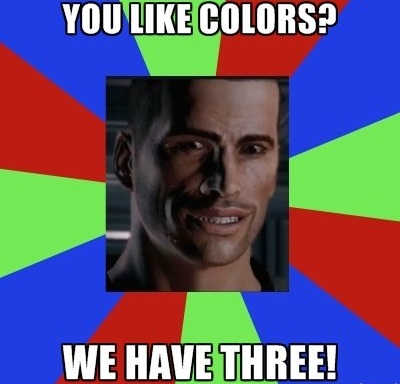
The idea that several minutes of cutscenes after the final decision can effectively wrap up an 100+-hour journey over the course of three games shows how heavy-handed the writers attempted to fit the trilogy into an open ending. It just doesn't match. It's sort of like reading the third book of Lord of the Rings and having it end with The One Ring being destroyed, Frodo and Sam being carried away by the giant eagles… The End. Sound familiar? But wait, what happened to the dozens of characters I've spent months, even years, caring about? What happens with the alliance between the turians and krogan? What about the genophage? How about the quarian and geth? A short email in Shepard's inbox just doesn't cut it.
And don't tell me that BioWare couldn't have made multiple epilogues for the many possible permutations of Mass Effect 3 playthrough. If Bethesda can do it for Fallout: New Vegas, there's no reason why BioWare shouldn't be held to the same standard. An open ending can still work with a well-balanced resolution that contain epilogues that don't reveal absolutely everything that happens.
The ending also abandons essential themes that run through the Mass Effect series by countering all of Shepard's efforts for galactic unity in the name of a God-child AI who boils down the entire universal struggle to the apparently inevitable conflict between organic and synthetic life. The billions upon billions of years of cyclical mass genocide is somehow the only "intelligent" solution that it could come up with. It's a Child-ish notion. Within Mass Effect 3 itself, there are two sentient synthetics: EDI and, if Shepard plays his or her cards right, the sentient geth. EDI is an essential part of the Normandy team, while Legion can sacrifice himself to make an effective peace between the quarian and the geth. This “inevitability” clause by the Child disregards these two characters completely.
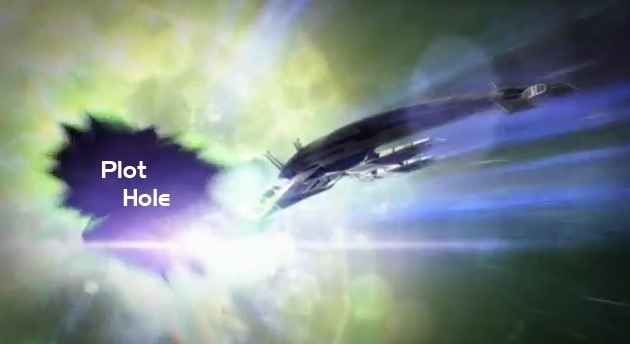
The inconsistencies with the ending are the worst of all. For Joker's escape scene to make sense, Joker would have to abandon his fight against the Reapers away from Earth, somehow pick up all of Shepard's members (but somehow not Shepard if he/she “survives” in the “destroy all synthetics” route) who are scattered around London, and get off the planet while somehow knowing that Shepard is about to destroy all of the mass relays.
Of course, that brings us to the fact that the explosion of a mass relay would, as Mass Effect 2's Arrival elucidates, destroy all the planets within that mass relay's system. Even if some planets survive, good luck to Tali, Garrus, Wrex, Liara, and all the aliens in the galactic fleet getting back to their homeworlds – you know, those planets Shepard spent the first two-thirds of Mass Effect 3 trying to save. Either that or face mass starvation because all of the farming planets are gone too.
I can only see the Indoctrination Theory, which supposes that the entire ending is a dream sequence after Shepard gets hit by the beam, as an attempt of blind faith by fans to see past all of the ending's faults. It's a nice idea and a good exercise in interpretation, but it gives the writers a bit too much credit and, even if it's right, it abandons clarity for muddy cleverness.
BioWare has no obligation to change Mass Effect 3's poor ending, but it should. Fans aren't asking for a gushingly happy ending that has all the characters start singing Kumbaya or where, as Penny Arcade puts it, a krogan bakes Shepard a cake. They just want the ending Bioware promised, one that considers their unique journey through the Mass Effect trilogy, fixes the numerous plotholes, and sees the sum of their decisions played out with a fitting resolution. BioWare has already admitted that fans helped with the storyline of Mass Effect 3. It's time they let us help once more.
